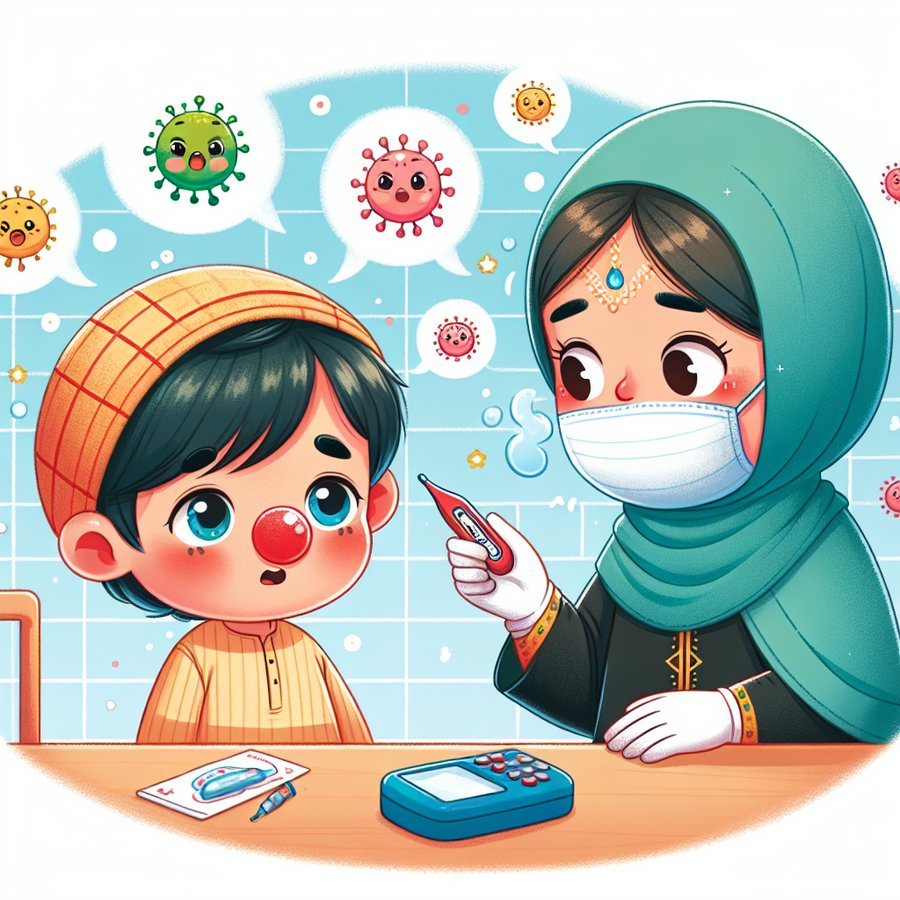Navigating your baby’s first cold: Symptoms and when to call the doctor can be a daunting experience for any parent. Witnessing your bundle of joy grappling with discomfort and not knowing how to alleviate their pain can lead to sleepless nights and worry-filled days. This comprehensive guide aims to arm you with the knowledge you need to confidently manage your baby’s first cold, recognize the signs that warrant a doctor’s visit, and provide your little one with relief.
Understanding the Common Cold in Babies
The common cold, although seemingly benign, can be quite different when it comes to babies. Infants’ immune systems are still developing, making them more susceptible to the myriad of viruses that cause the common cold. Recognizing the early signs of a cold can be crucial in providing prompt care and preventing the escalation of symptoms.
Some of the most common symptoms include a runny or stuffy nose, sneezing, coughing, a mild fever, and irritability. While these symptoms can be unsettling, they are typically manageable at home with proper care and attention. However, it’s crucial to keep a close eye on your baby’s condition, as infants are at a higher risk of developing complications from a cold, such as ear infections or pneumonia.
Navigating your baby’s first cold: Symptoms and when to call the doctor
Navigating your baby’s first cold involves more than just monitoring symptoms; it requires proactive steps to ensure your baby’s comfort and health. It’s essential to ensure your baby stays hydrated, as fluids can help thin mucus and relieve congestion. Using a humidifier in your baby’s room can also provide relief from stuffy noses and make breathing easier. For babies over six months, offering small amounts of water can aid in hydration, while younger infants should continue to be breastfed or bottle-fed as usual.
Knowing when to call the doctor is just as important as managing symptoms at home. If your baby is younger than three months and exhibits signs of a cold, it’s advisable to contact your pediatrician right away. Other reasons to call the doctor include a fever of 100.4°F (38°C) or higher in newborns, difficulty breathing, persistent crying, or if the cold symptoms last more than a week. For a detailed guide on dealing with your baby’s first cold and when to seek medical attention, visit our article on Navigating your baby’s first cold: Symptoms and when to call the doctor.
Preventive Measures and Boosting Your Baby’s Immunity
While dealing with a cold is inevitable, there are steps you can take to minimize the risk of your baby catching one. Practicing good hygiene, such as regular handwashing and avoiding close contact with sick individuals, can significantly reduce the spread of cold viruses. Ensuring your baby is up to date with their vaccinations is also crucial in boosting their overall immunity and protecting them against more severe illnesses. For more information on keeping your baby healthy and preventing illnesses, explore our article on vaccination schedules for babies.
Additionally, breastfeeding has been shown to pass on vital antibodies to babies, helping them fight off infections more effectively. If breastfeeding is not an option, choosing formula milk designed to support your baby’s immune system can also be beneficial. Remember, a healthy diet and regular pediatric check-ups play a significant role in maintaining your baby’s health and preventing the common cold.
When to Transition from Home Care to Doctor’s Care
While many colds in babies can be managed at home, it’s essential to recognize when your baby’s condition requires medical attention. If you notice any signs of dehydration, such as fewer wet diapers, dry mouth, or lethargy, it’s time to call the doctor. Other warning signs include difficulty breathing, a high fever that doesn’t subside with fever reducers, or if your baby refuses to eat or drink.
Babies have a unique way of showing they need help, and as a parent, trusting your instincts is crucial. If something doesn’t feel right or if your baby’s symptoms worsen, don’t hesitate to seek professional medical advice. Early intervention can prevent complications and ensure your baby recovers quickly and safely.
In conclusion, navigating your baby’s first cold requires a blend of attentive care, preventive measures, and knowing when to seek medical help. By staying informed and prepared, you can ensure your baby gets through their first cold with as much comfort and support as possible. For more tips on baby care and health, don’t forget to visit our extensive library of resources at Baby Whys and Hows.













